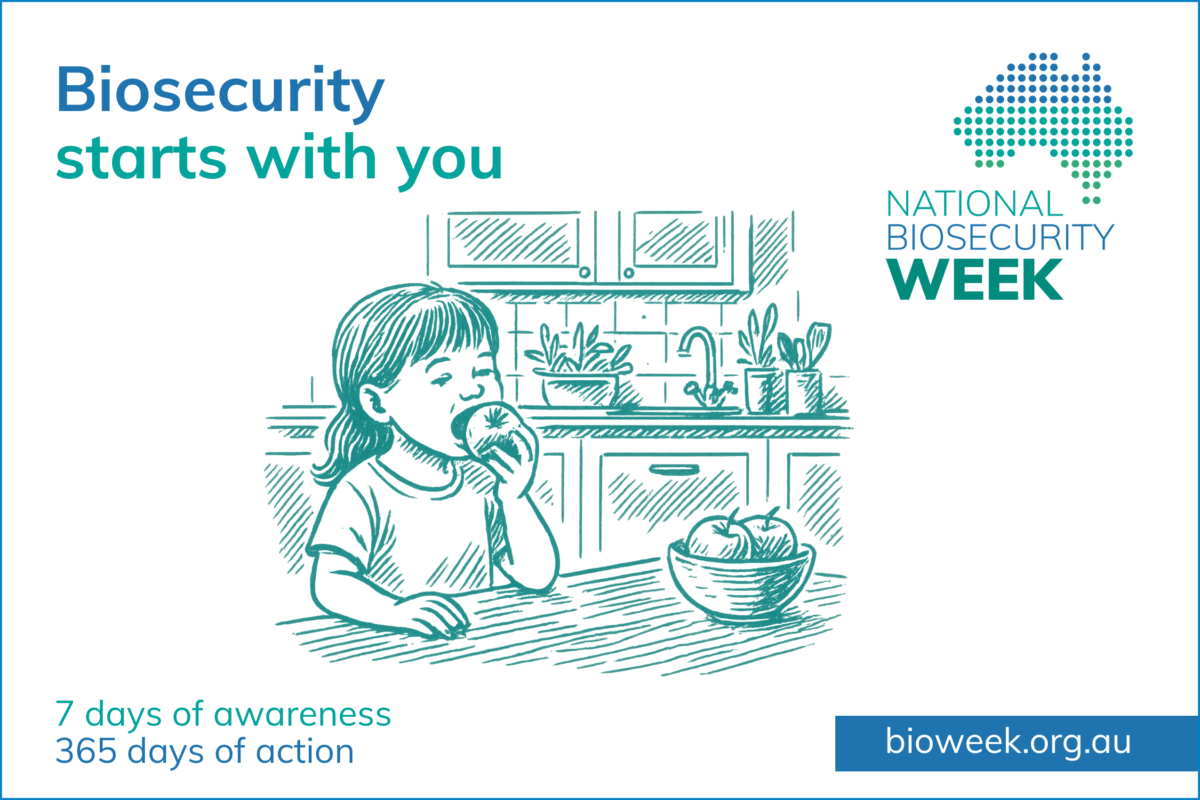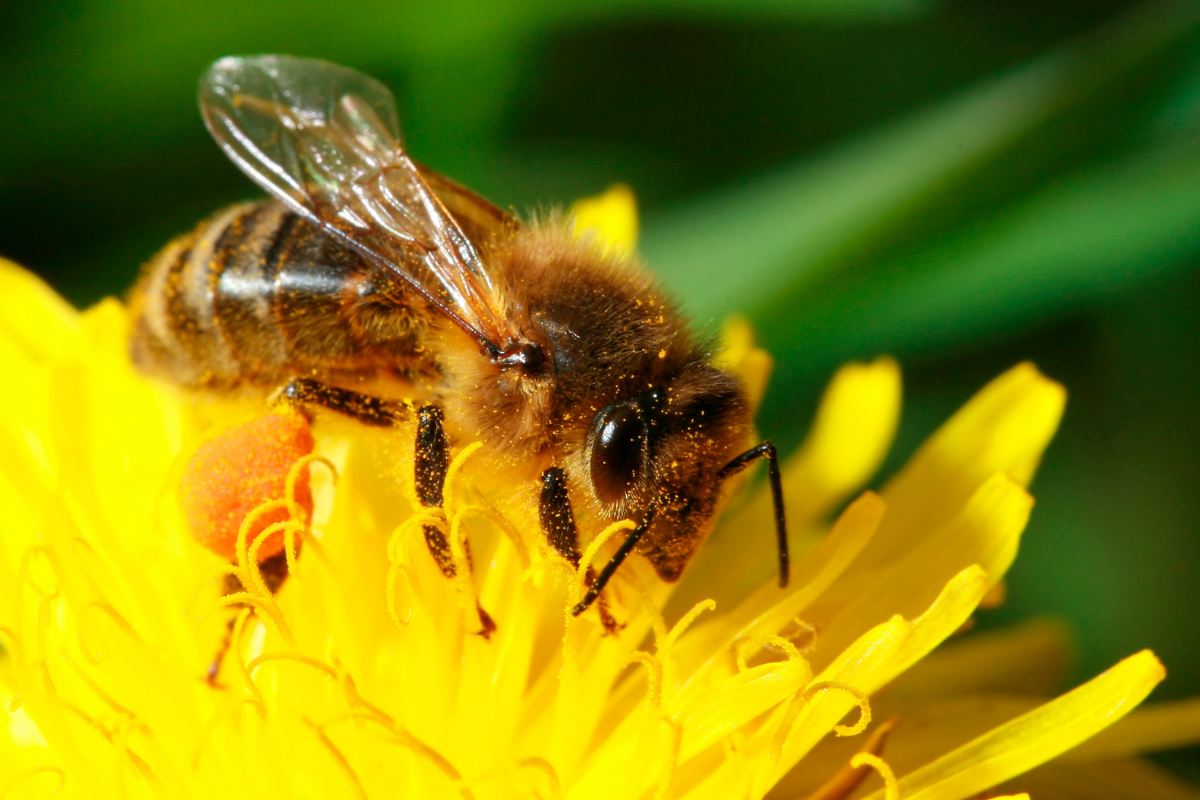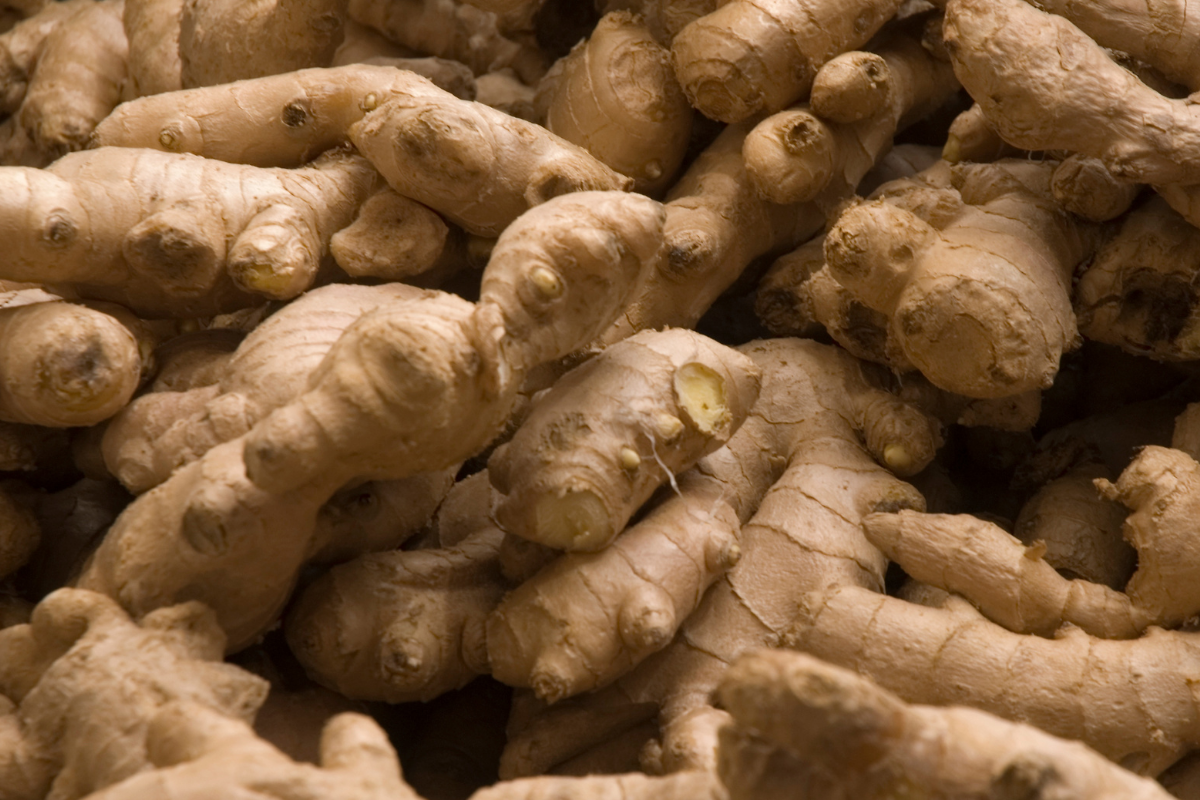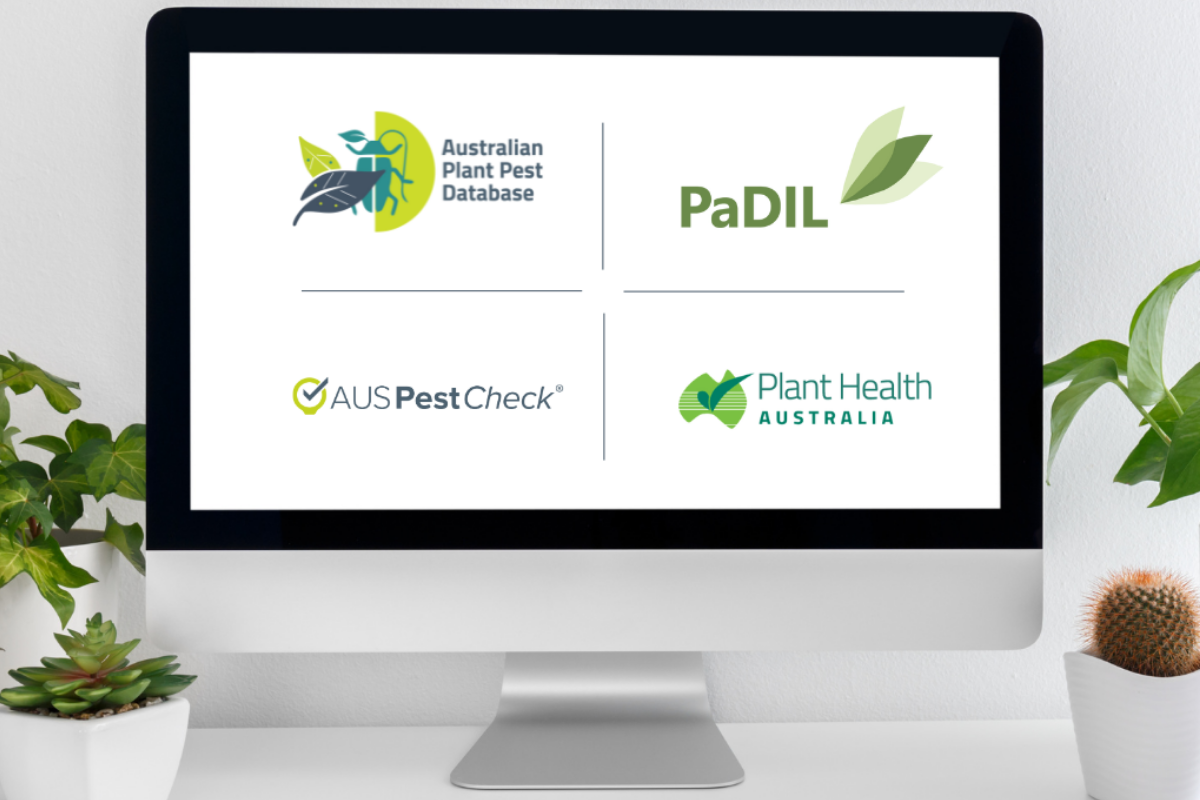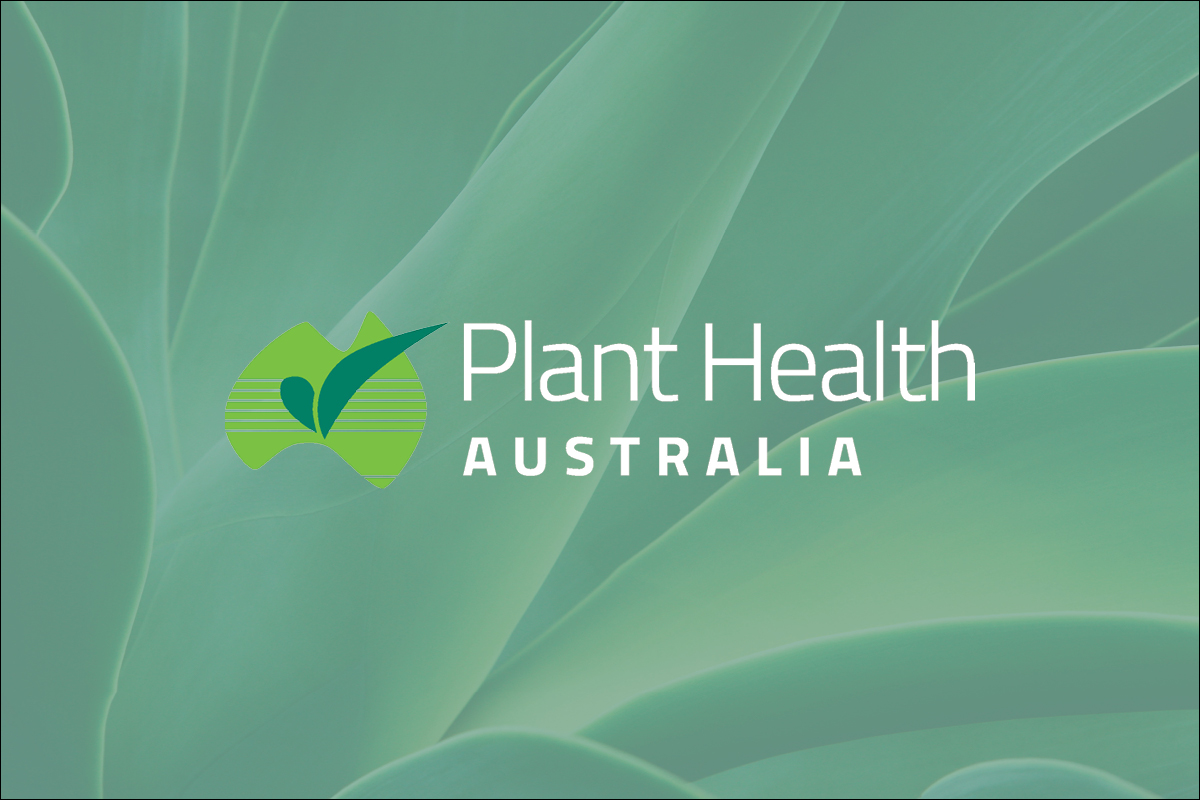Get ready for National Biosecurity Week: 25-31 August 2025
Protecting what matters, together.
National Biosecurity Week (NBW) is back from 25-31 August 2025, shining a spotlight on the vital role biosecurity plays in protecting our environment, food supply, economy, and way of life.
Building on the success of its inaugural launch at the Australian Biosecurity Symposium on the Gold Coast in August 2024, this year’s NBW steps up the call for action, reaching beyond government and industry to engage everyday Australians.
“Biosecurity isn’t just for farmers and government. It’s something we all have a role in — at home, at work, and in our communities,” said Sarah Corcoran, CEO of Plant Health Australia (PHA).
“Too often, people think biosecurity means border control and people in hazmat suits. They assume it’s government’s job. This year’s NBW aims to demystify biosecurity and show that it’s really about protecting the things we all value: our natural environment, our industries, and our way of life. And everyone has a part to play.”
To support stronger engagement with everyday Australians, this year’s campaign features simple, practical ways for people to get involved. Whether it’s cleaning your shoes before visiting a farm, reporting something unusual in your backyard, or learning how biosecurity works, every action matters.
How can everyday Australians get involved?
Biosecurity action is simple, practical, and powerful:
✅ clean your shoes before visiting farms, parks or nature reserves.
✅ report anything unusual such as pests, diseases, weeds, or animals.
✅ take a few minutes to learn how biosecurity protects your community.
To help build national biosecurity awareness and capability, the National Biosecurity Training Hub was launched in 2024 as a central, free online platform providing easy access to biosecurity education and training. Designed for individuals, businesses, industries, and communities, the Hub brings together a wide range of learning resources, from introductory courses to specialist materials, helping more Australians understand their role in safeguarding the country’s environment, agriculture, and economy. The platform is accessible to anyone, whether you’re on the land, in supply chains, in local government, or simply curious about how biosecurity protects everyday life.
Building on the success of the National Biosecurity Hub, PHA recently launched the Youth Biosecurity Hub (YBH), with funding from the Queensland Government through the Queensland Biosecurity Grants Program. This new online platform provides educators, students, and community groups with engaging, age-appropriate resources to build biosecurity awareness across Australia.
The YBH offers a centralised library of curriculum-aligned lesson plans, activities, and interactive tools designed to bring biosecurity to life in classrooms and communities. An accompanying eLearning course, set to launch in late July 2025, will inspire young Australians to become biosecurity heroes by showing them how simple, everyday actions can make a lasting difference.
“We’re working to build a culture where biosecurity is second nature, where every Australian understands that protecting what matters starts with each of us. The earlier we start, the stronger we become,” said Samantha Allan, CEO of Animal Health Australia.”
“Whether you’re a farmer, a freight worker, a teacher, or a student, your actions matter. Every role counts, and every action makes a difference.”
“Invasive species are a major threat to Australia’s biodiversity, agriculture and cultural heritage. National Biosecurity Week is a great reminder that protecting our environment starts with being aware and taking action. We’re proud to support a community-wide effort where science, smart ideas, and everyday care all play a role in protecting what matters most,” said Shauna Chadlowe, CEO, Centre for Invasive Species Solutions.
Biosecurity is more than just borders. It’s layers of protection — overseas, at the border, and here at home. But success depends on early detection, fast action, and everyone’s vigilance.
If you see something unusual, don’t ignore it:
- Exotic Plant Pest Hotline: 1800 084 881
- Emergency Animal Disease Hotline: 1800 675 888
“This is a chance to reach more people, strengthen understanding, and help build the biosecurity system we all rely on. Because when it comes to biosecurity, we’re only as strong as our weakest link,” said Ms Corcoran.
Learn more or register your event bioweek.org.au
#BioWeekAU
